Tom Brady and the greatest late-round picks in NFL draft history
Late Round, Canton Bound
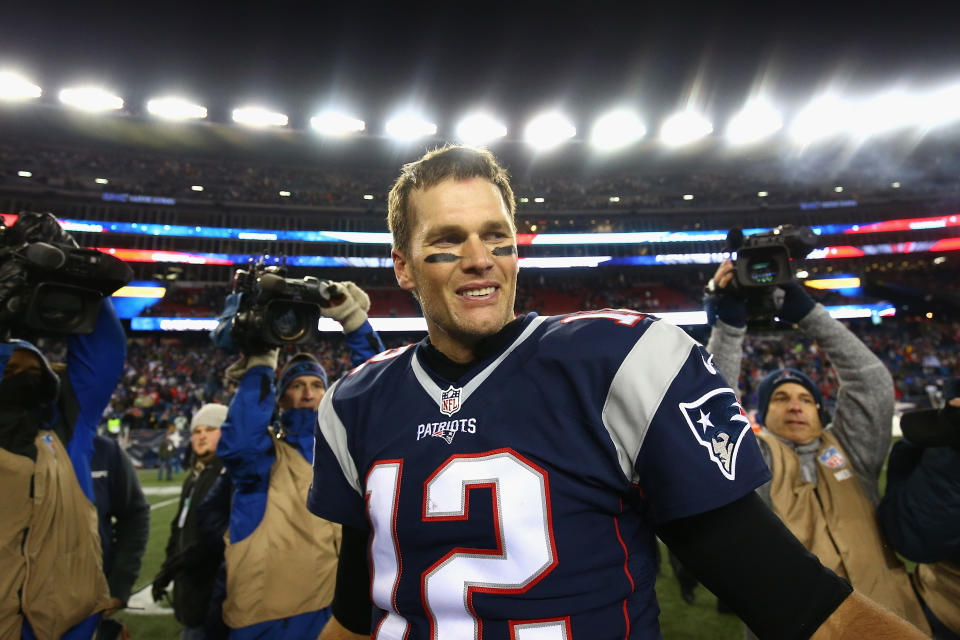
Whenever the NFL draft arrives on the sports calendar, and the players start coming off the board as the selection process moves well past the first, second, third and fourth rounds, Tom Brady’s name is eventually mentioned.
Brady is the face of late draft pick success—6th round, pick No. 199—a giant Super Bowl-winning spotlight on a system that really isn’t anything more than hopeful guessing dressed with statistical acronyms and heights and weights.
But ol’ number 12 isn’t the only NFL player to have a Hall of Fame career after getting selected late in the draft.
Take a look…
Honorable Mention — Dwight Clark: 10th round, pick No. 249
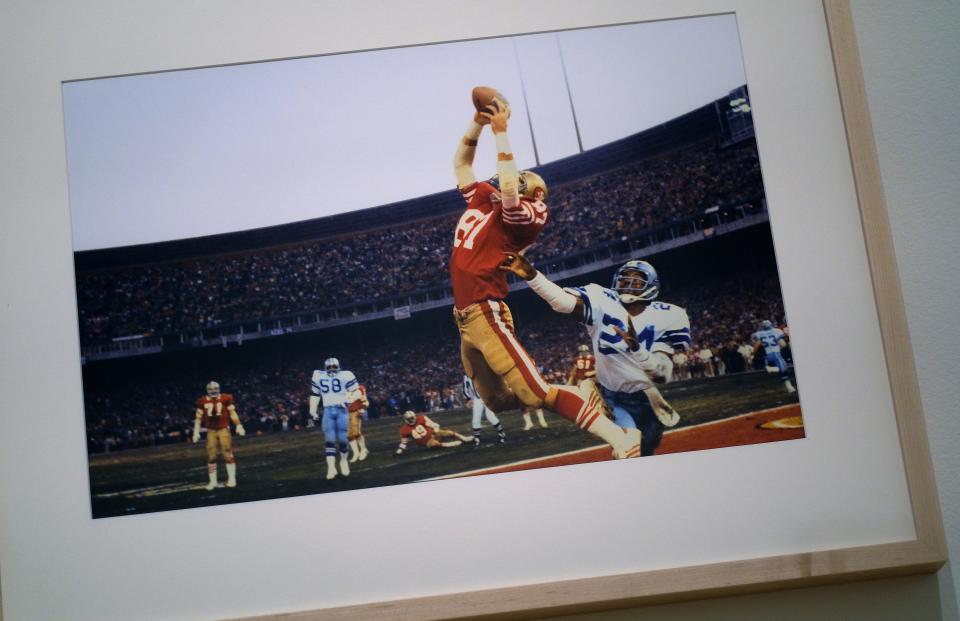
Although Clark isn’t in the Hall of Fame, overlooking his career and the interesting origins of “The Catch” is worth mentioning here. Clark was the 249th pick in the same draft (1979) as his eventual 49ers teammate, Joe Montana. Montana went in the third round, while Clark went in the 10th. And a few years later, in 1982, the duo created a lasting mark NFL history, not only wining the NFC Championship game over th Cowboys but providing a video clip and imagery that’s as recognizable as anything in the sports vault.
Honorable Mentions — Jason Kelce: 6th round, pick No. 191
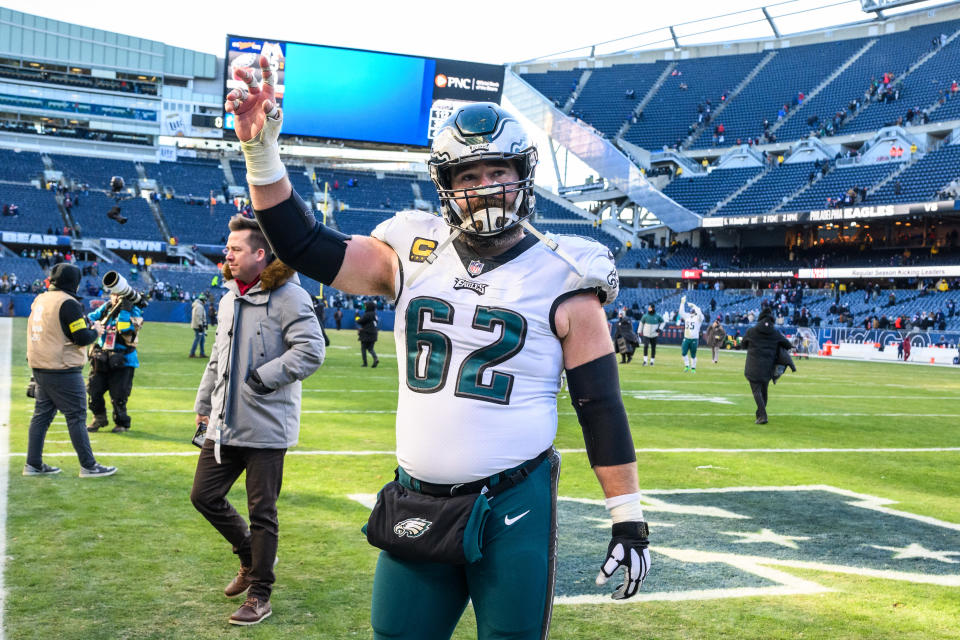
The Eagles got an absolute steal in the sixth round of the 2011 NFL draft. Kelce’s won a Super Bowl with Philly in 2017, earned multiple All-Pro nods as well as Pro Bowl selections, and hasn’t missed a start since 2014! He’s still active, but it’s a pretty safe bet we’ll see this late-rounder in Canton on day.
Terrell Davis: 6th round, pick No. 196
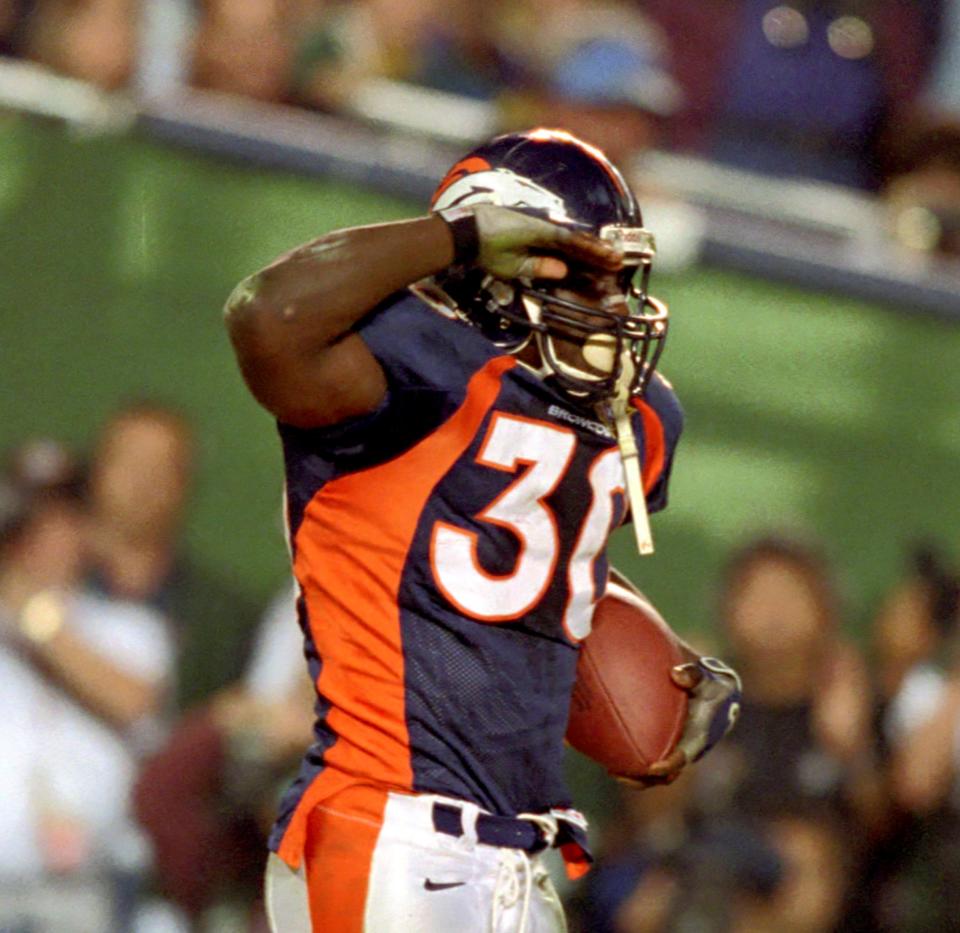
Davis went to the Denver Broncos in the 1995 draft, and what followed was a Hall of Fame career that had one of the greatest stretches of all time for a running back. The Super Bowl 52 MVP was unstoppable in the late-90s, helping the Broncos win two Super Bowls. Not bad for a sixth-rounder—just imagine if injuries didn’t get in Davis’ way.
Richard Dent: 8th round, pick No. 203
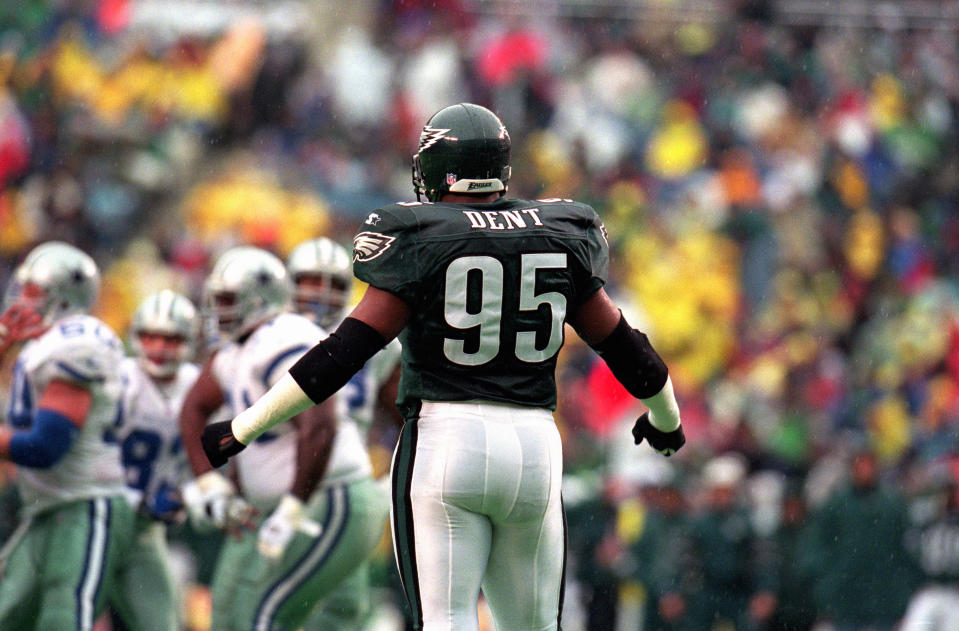
An eighth round?! The Bears grabbed a legend back in 1983, a future Hall of Famer who would be one of the key players in Buddy Ryan’s 4-6 defense. Dent was a terror for the Bears, posting 137.5 career sacks while helping the team win Super Bowl 20.
Rayfield Wright: 7th round, pick No. 182
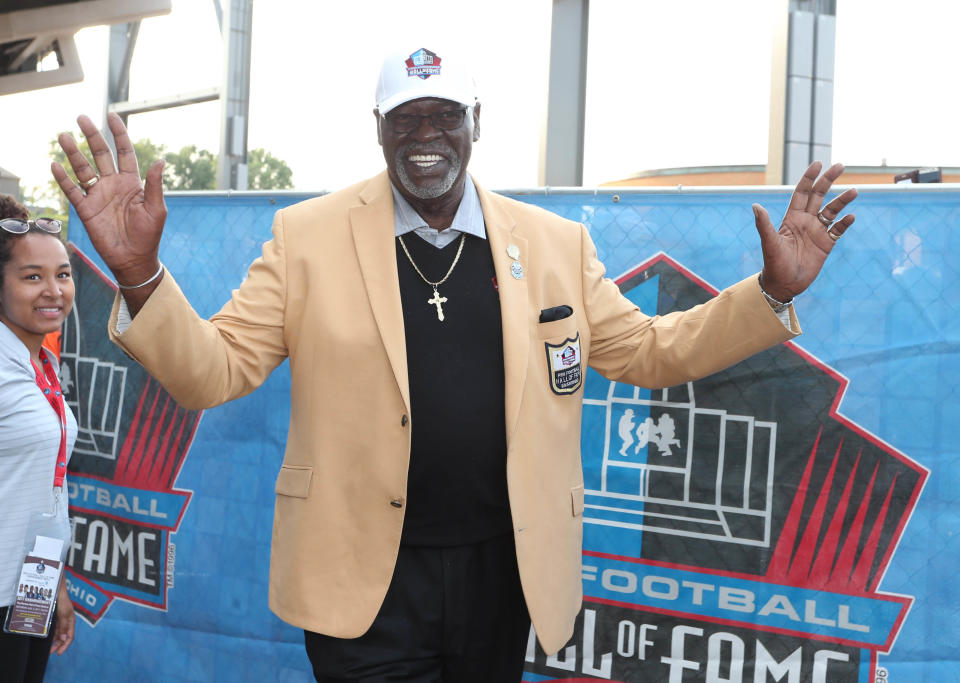
We’re heading back to the 1967 NFL/AFL draft for the next Hall of Famer on this list. Wright went to the Cowboys in the seventh round that year, which kicked off a career that included six Pro Bowls for Tom Landry’s team.
Zach Thomas: 5th round, pick No. 154
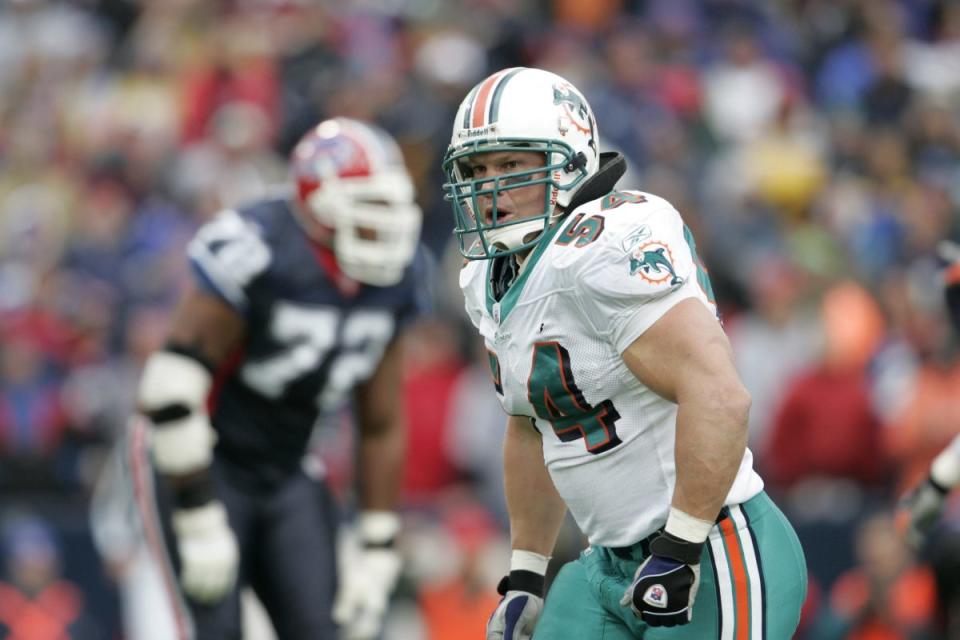
Too small? That may have been a concern with Thomas back in 1996, but the Dolphins made the smart move to overlook it. The Red Raider went on to be a true force in the NFL, one that gained admiration from Hall of Fame QBs like Peyton Manning and Tom Brady. And after a career that included seven Pro Bowl selections, five first-team All-Pro honors and a place in the 2000s All-Decade Team, Thomas finally gets his rightful place in Canton in 2023.
Shannon Sharpe: 7th round, pick No. 192
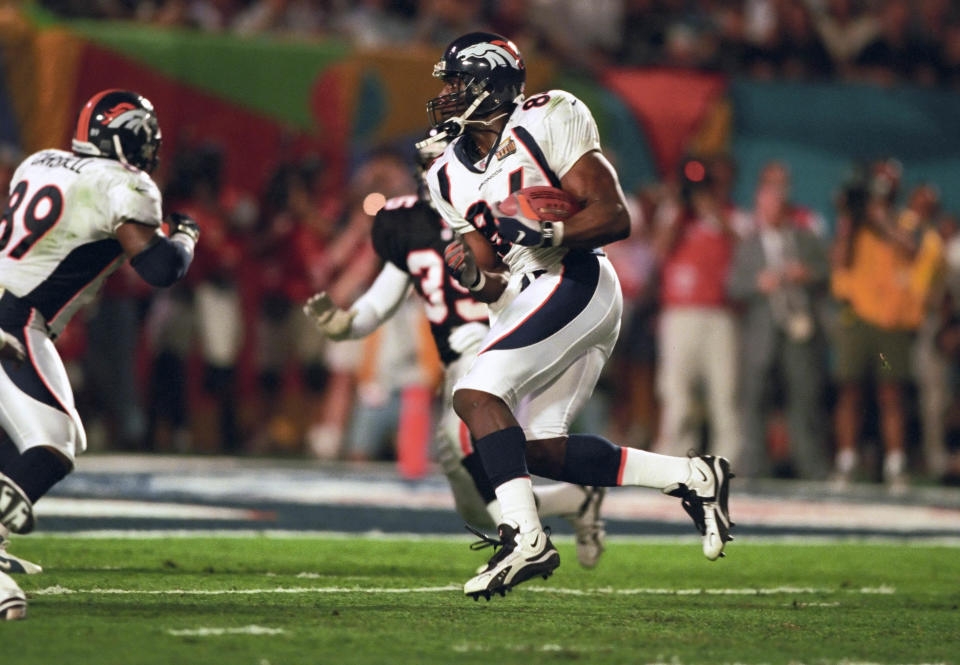
Sharpe went to the Broncos in the 1990 NFL draft, a late pick that worked out quite well for the Mile High franchise and fan base. The Hall of Famer would be part of the two Super Bowls with Denver—winning a third with the Baltimore Ravens—and the first tight end ever to gain over 10,000 receiving yards. To that, Sharpe retired as the all-time leader for receptions and touchdowns by a tight end, records eventually broken by Tony Gonzalez.
Mike Webster: 5th round, pick No. 125th
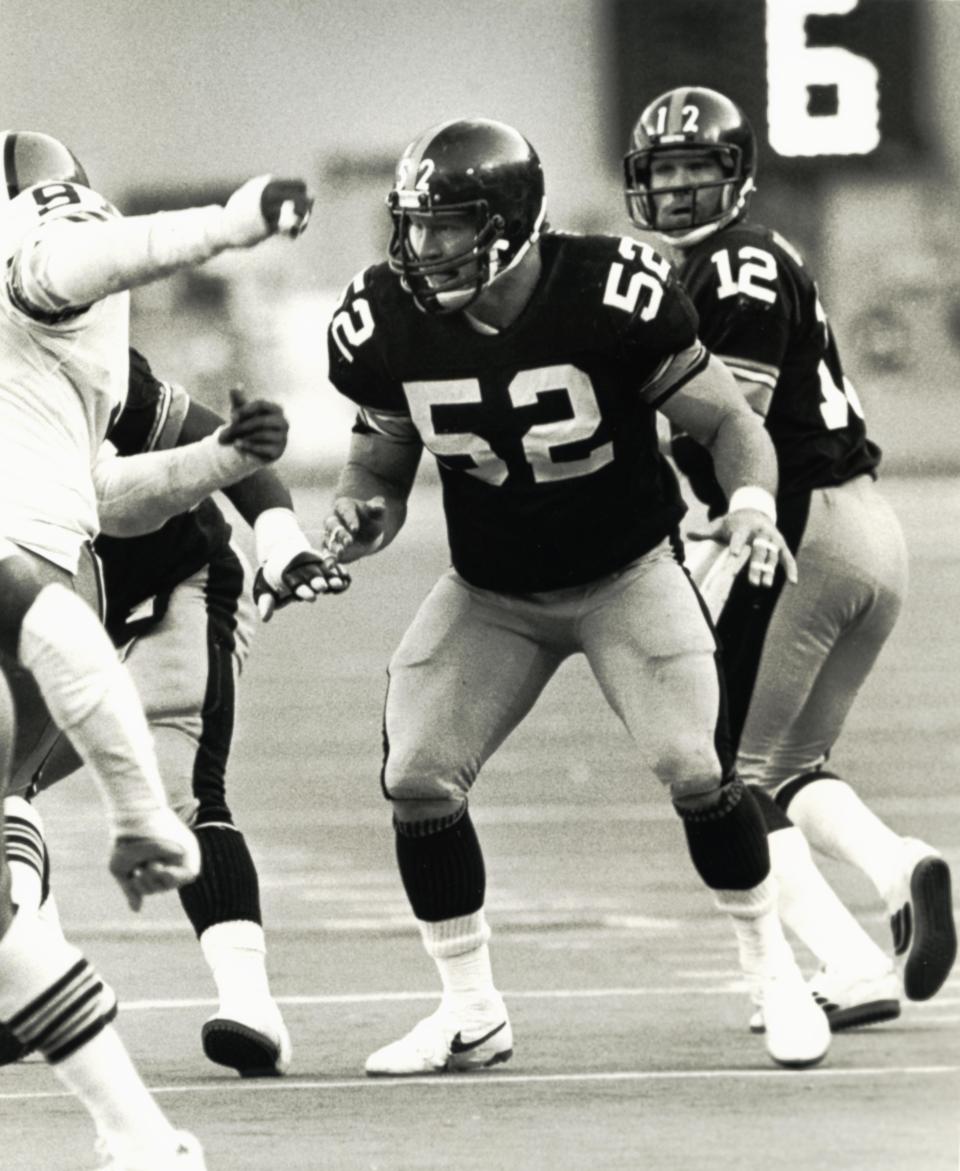
In 1974 the Pittsburgh Steelers went with a center in the fifth round, and the rest is history. Webster started 217 games during a career that spanned the mid-70s to 1990. The 1997 Hall of Fame selection was the core of the offensive line for the Steelers, a six-time All-Pro who earned four Super Bowl rings during his time in the Steel City..
Roger Staubach, 10th round, pick No. 129
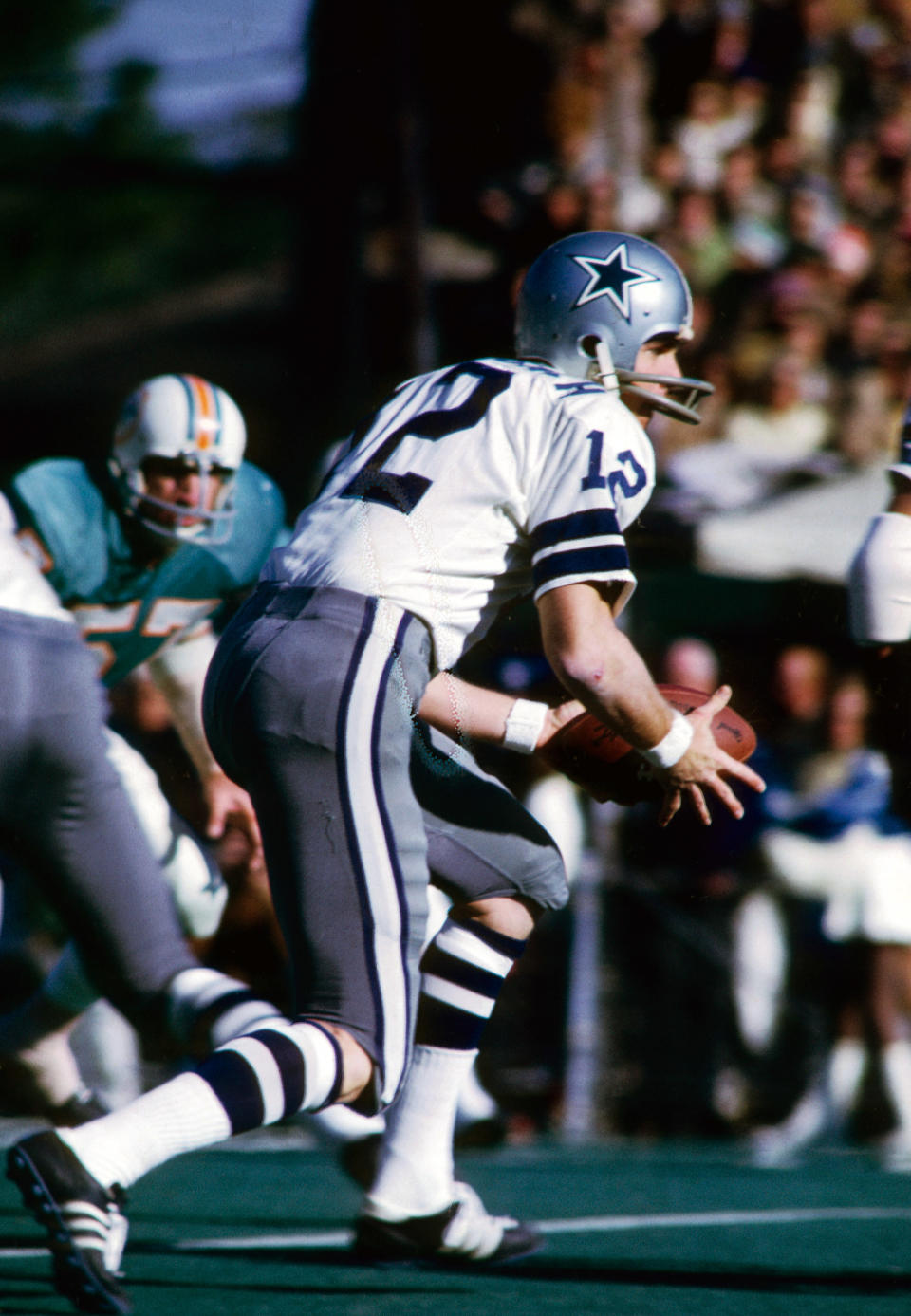
Staubach joins Rayfield Wright in Cowboys history as a late-round pick in the 1960s, going in the 10th round of the ’64 draft. His career highlights that era, too: arguably the face of the Cowboys during Tom Landry’s run, Staubach didn’t start for the team until 1970 due to his service time in Vietnam. And while his career didn’t end the upper echelon of the statistical hierarchy, the 1985 Hall of Fame inductee won two Super Bowls for the franchise (in four appearances) and was the first ever to win the Heisman Trophy and Super Bowl MVP.
Deacon Jones: 14th round, pick No. 186
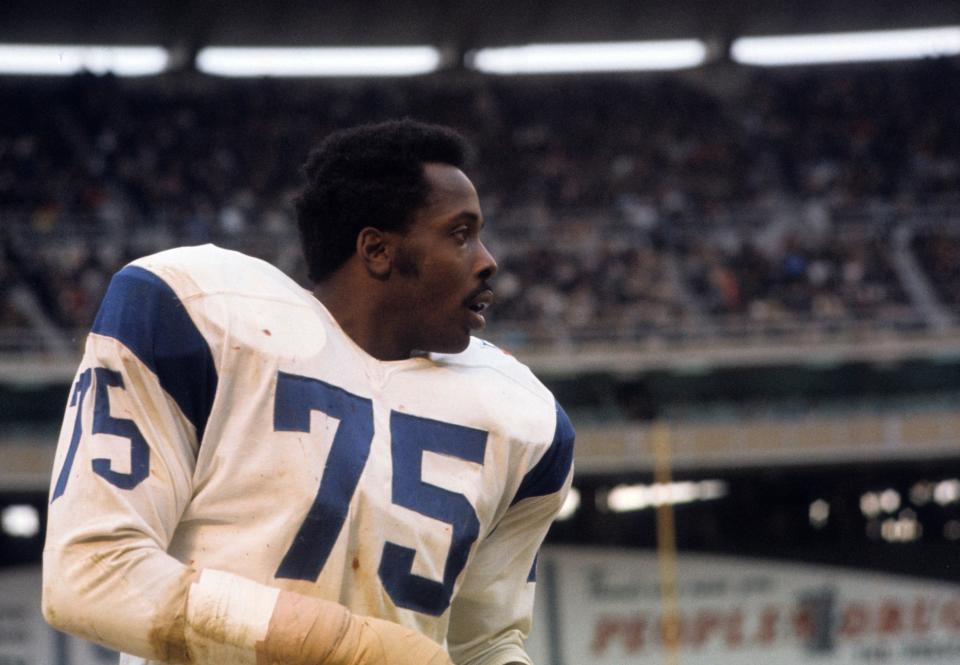
Imagine if the sack—a term Jones coined—was a stat the NFL kept before 1982. Jones was a terror on defense and arguably the greatest in Los Angeles Rams history. Though unofficial, it has been confirmed that Jones amassed 173.5 sacks during his NFL career. That’s third all-time. Not bad for the 186th pick in 1961.
Bart Starr: 17th round, pick No. 200
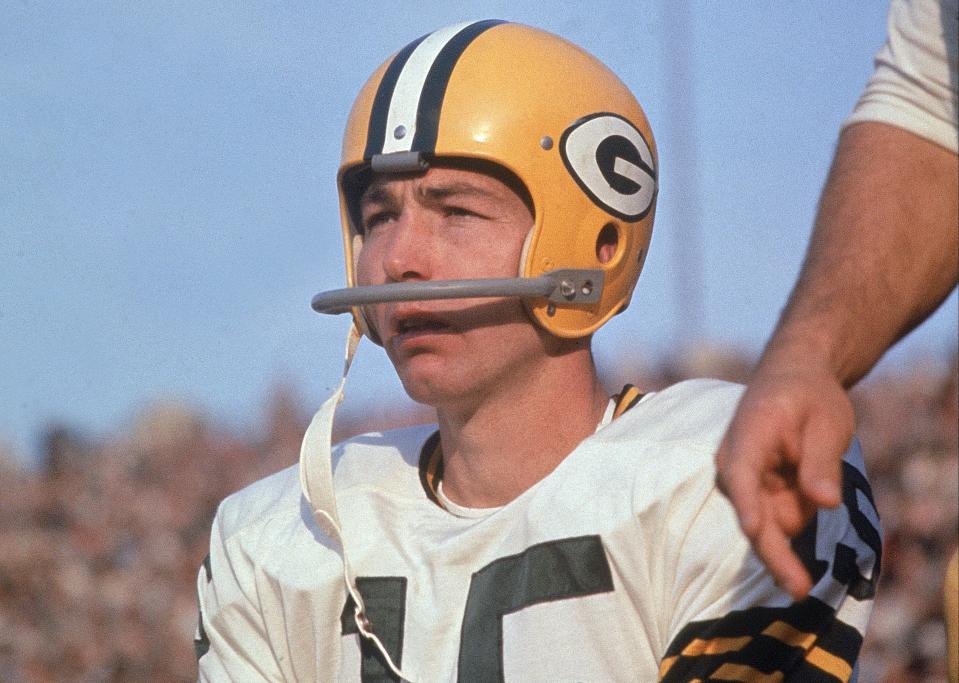
Before Tom Brady made history as the 199th pick in an NFL draft, there was Bart Starr, who topped that by one selection. Starr went to the Green Bay Packers at No. 200 in 1956, a 17th-round pick that turned into the origins of NFL history. Three years after the ’56 draft, Starr would start a run with Vince Lombardi’s Packers that ended with three NFL championships (pre-Super Bowl) and the first two Super Bowls. Starr would enter the Hall of Fame in 1977, the first to demonstrate that what round you’re selected in often means very little.

